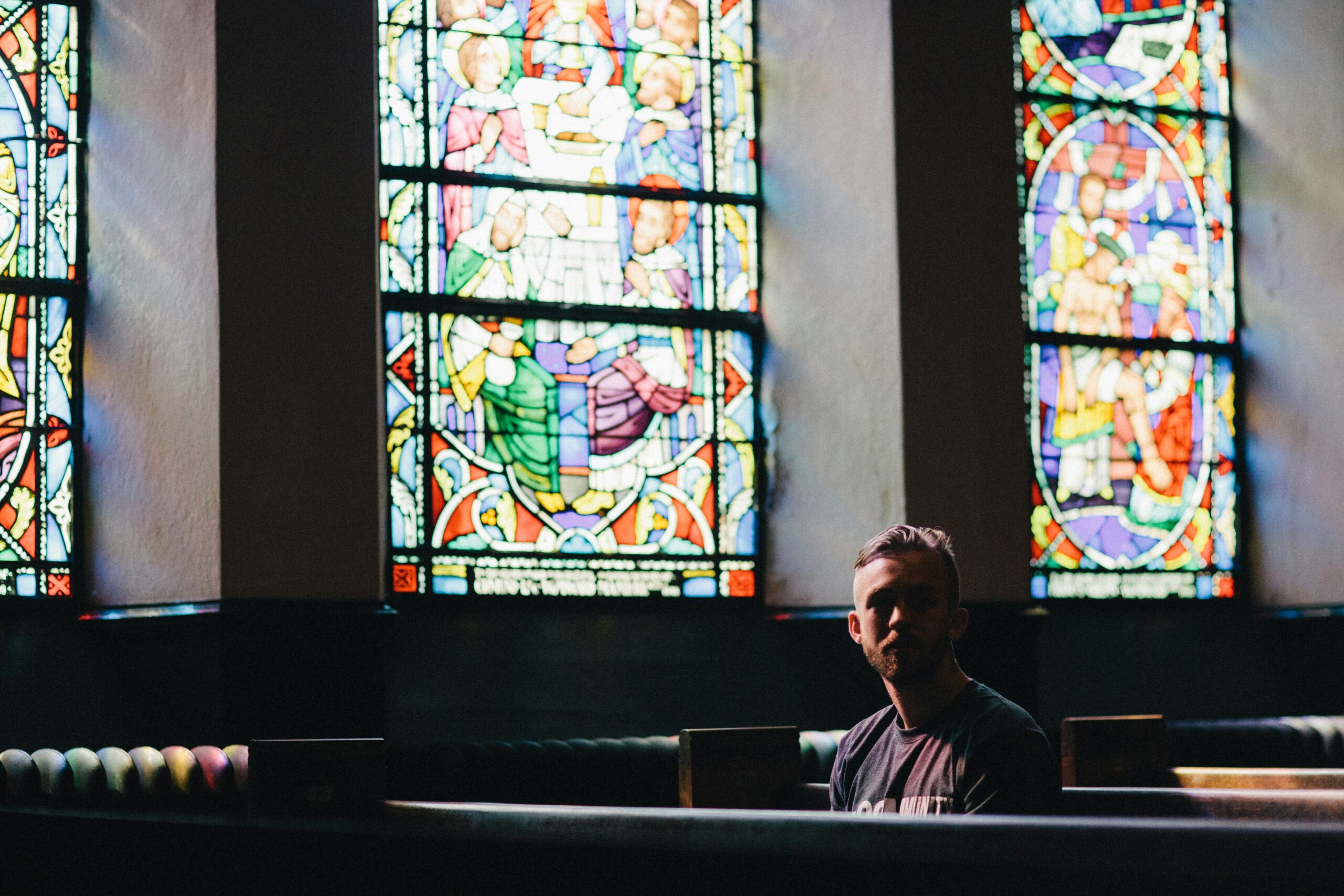
How to Deal with Church Hurt
Have you ever experienced pain or disappointment within the church community? It’s not uncommon for individuals to face emotional and spiritual wounds from their church experiences. Church hurt can stem from a variety of sources, including conflicts, leadership issues, or unmet expectations. Understanding how to navigate this challenging terrain is crucial for healing and moving forward in your faith journey.
Psalm 147:3 – “He heals the brokenhearted and binds up their wounds.”
Sarah’s Experience
Sarah’s mother, Mrs. Button, was a devout church member. She actively participated in church activities, diligently paid her tithe, and was known for bringing cookies to church and mentoring younger members. Most importantly, she never missed a Sunday service. However, after her death, the church’s response did not match her kindness. Their minimal contribution to her burial left Sarah embittered, leading to her departure from the church.
Events like these can become obstacles that hinder one’s faith and distance us from the church. Although they may seem minor, such incidents can damage our faith in God, and if not addressed quickly, they can lead us to fall away from our faith.
My Experience
I am no stranger to church hurt. Many years ago, I had a terrible encounter with a church leader that left me deeply disappointed and utterly disillusioned with the Church as a whole. I was convinced that the priest’s attitude reflected the entire church, and to be completely honest, I even believed it reflected on God as well. This caused me to leave the church for some time and lose interest in Christianity. However, the turning point came when I met another priest who led me back to God. He restored my faith and encouraged me to return to church. Looking back now, I believe I could have handled the situation better, but at the time, I was new to the faith and had not yet had a personal encounter with God. With my experience, I believe I can offer a compassionate approach to anyone dealing with church hurt.
Understanding Church Hurt
Church hurt refers to the emotional and spiritual pain caused by negative experiences within a church setting. This hurt can result from misunderstandings, conflicts with fellow members, hurtful actions by church leaders, or unmet expectations. It’s essential to recognize that church hurt is a real and valid experience that many people face.
1. Acknowledge Your Feelings
The first step in dealing with church hurt is acknowledging and validating your feelings. It’s okay to feel hurt, confused, or even angry about what has happened. Suppressing these emotions or pretending they don’t exist can hinder your healing process. Allow yourself to grieve and process your emotions in a healthy way. Yes that happened, what’s the next step?
Acknowledging your feelings involves recognizing what happened, understanding why it occurred, reflecting on why it hurt you, and allowing space for reconciliation with the offending party.
2. Seek Support
Don’t go through this alone. Reach out to trusted friends, family members, or mentors who can offer support and guidance. Sometimes, talking about your experiences with someone who understands can provide comfort and perspective. Seek out a counselor or therapist, especially one experienced in pastoral care, if you need professional help.
A common mistake many Christians make is isolating themselves and dealing with their hurt privately, without reaching out to others for support. Remember, a problem shared is a problem halved. Seek out respected elders in the church and share your hurt with them. However, note that age doesn’t always equate to maturity in the Christian faith. In this context, an elder refers to a devout Christian who has consistently demonstrated their devotion to God.
3. Reflect on the Source of Hurt
Take some time to reflect on the root cause of your hurt. Was it a specific event, ongoing conflict, or a pattern of behavior? Understanding the source can help you address the issue more effectively. This reflection can also provide insights into how to prevent similar issues in the future.
In my experience, church hurt often stems from unexpected people, which is why it affects us so deeply. The unexpected nature of these betrayals makes them particularly painful.
4. Forgive and Let Go
Forgiveness is a crucial part of healing from church hurt. It’s important to remember that forgiveness is not about excusing the behavior but releasing yourself from the burden of resentment and anger. Forgive those who have hurt you, whether they are individuals, groups, or even the institution itself. Forgiveness is a process that takes time, so be patient with yourself.
Forgiveness is often easier said than done. Here’s a unique perspective I found helpful: I began to separate people’s behavior from the church itself. I reminded myself that the church is not just a building or a place—it’s made up of individuals like you and me. Jesus described the church as the community of Christians. When someone hurts me, I remind myself that the hurt is from that individual, not from the church as a whole. The devil often tries to convince us that this hurt is unforgivable and that our healing can only come from leaving the church. Unfortunately, I believed this lie for a long time, but I am grateful for God’s redemption. The enemy seeks to isolate us, knowing that it’s easier to undermine our faith when we’re alone. As Hebrews 10:25 (KJV) states, ‘Not forsaking the assembling of ourselves together, as the manner of some is; but exhorting one another: and so much the more, as ye see the day approaching.’ The Bible encourages us to remain committed to gathering with other Christians, regardless of the challenges.
I have also had to confront the ugliness of my own unforgiving heart. Who am I to withhold forgiveness when God has forgiven me for far greater offenses? I refuse to let the devil deceive me into abandoning my place in God due to bitterness and an unforgiving spirit. I surrender everything to God, asking Him to heal my heart and remove the hurt. I will not give the devil room to influence my thoughts or lead me astray. I acknowledge the hurt, but I remind myself that forgiveness is essential.
5. Rebuild Trust Gradually
Rebuilding trust within a church setting can be challenging, especially after experiencing significant hurt. Start by taking small steps towards re-engaging with the church community. Participate in activities or groups that feel safe and supportive, and allow yourself time to rebuild trust at your own pace. Remember to bring your concerns to God in prayer. Prayer is key to addressing all our problems. Our Father in heaven is always willing and ready to alleviate our concerns, even those we might consider insignificant. He is able to heal our hearts and realign our vision to see and love others, even in their imperfection.
6. Set Healthy Boundaries
Establishing healthy boundaries is important for protecting yourself from further hurt. This might involve setting limits on your involvement in certain activities or relationships within the individual that caused the hurt. Healthy boundaries help you maintain a sense of emotional safety and prevent further harm.
7. Focus on Your Relationship with God
Amidst the pain of church hurt, focus on your personal relationship with God. Prayer, scripture reading, and worship can provide comfort and strength. Remember that your relationship with God is separate from your experiences with people. Seek solace in God’s promises and His unwavering love for you.
8. Reevaluate Your Church Involvement
If you find that the church setting is not conducive to your healing, consider evaluating your involvement. It may be necessary to find a new church community where you feel supported and valued. Changing churches can be a difficult decision, but sometimes it is necessary for your spiritual and emotional well-being. Most importantly, before making any decision seek the face of God on what approach to take.
9. Learn and Grow from the Experience
Every experience, even painful ones, can offer opportunities for growth. Reflect on what you’ve learned from the situation and how it has shaped your understanding of church and community. Use this insight to guide you in building healthier relationships and finding a more supportive church environment.
10. Seek Guidance from Scripture
The Bible offers wisdom and comfort for those dealing with hurt and disappointment. Consider these verses for encouragement and guidance:
- Psalm 34:18 – “The Lord is close to the brokenhearted and saves those who are crushed in spirit.”
- Matthew 11:28 – “Come to me, all you who are weary and burdened, and I will give you rest.”
- Romans 8:28 – “And we know that in all things God works for the good of those who love him, who have been called according to his purpose.”
- 2 Corinthians 1:3-4 – “Praise be to the God and Father of our Lord Jesus Christ, the Father of compassion and the God of all comfort, who comforts us in all our troubles, so that we can comfort those in any trouble, with the comfort we ourselves receive from God.”
- Philippians 4:6-7 – “Do not be anxious about anything, but in every situation, by prayer and petition, with thanksgiving, present your requests to God. And the peace of God, which transcends all understanding, will guard your hearts and your minds in Christ Jesus.”
- 1 Peter 5:7 – “Cast all your anxiety on him because he cares for you.”
- Hebrews 12:15 – “See to it that no one falls short of the grace of God and that no bitter root grows up to cause trouble and defile many.”
- Isaiah 41:10 – “So do not fear, for I am with you; do not be dismayed, for I am your God. I will strengthen you and help you; I will uphold you with my righteous right hand.”
- James 1:5 – “If any of you lacks wisdom, you should ask God, who gives generously to all without finding fault, and it will be given to you.”
- Psalm 147:3 – “He heals the brokenhearted and binds up their wounds.”
- 2 Chronicles 7:14 – “If my people, who are called by my name, will humble themselves and pray and seek my face and turn from their wicked ways, then I will hear from heaven, and I will forgive their sin and will heal their land.”
- Proverbs 3:5-6 – “Trust in the Lord with all your heart and lean not on your own understanding; in all your ways submit to him, and he will make your paths straight.”
- Lamentations 3:22-23 – “Because of the Lord’s great love we are not consumed, for his compassions never fail. They are new every morning; great is your faithfulness.”
- Psalm 73:26 – “My flesh and my heart may fail, but God is the strength of my heart and my portion forever.”
- Romans 15:13 – “May the God of hope fill you with all joy and peace as you trust in him, so that you may overflow with hope by the power of the Holy Spirit.”
- Psalm 18:30 – “As for God, his way is perfect: The Lord’s word is flawless; he shields all who take refuge in him.”
- Isaiah 43:2 – “When you pass through the waters, I will be with you; and when you pass through the rivers, they will not sweep over you. When you walk through the fire, you will not be burned; the flames will not set you ablaze.”
- Psalm 55:22 – “Cast your cares on the Lord and he will sustain you; he will never let the righteous be shaken.”
- Matthew 6:34 – “Therefore do not worry about tomorrow, for tomorrow will worry about itself. Each day has enough trouble of its own.”
- Psalm 46:1 – “God is our refuge and strength, an ever-present help in trouble.”
Dealing with church hurt is a process that involves emotional healing, reflection, and renewal. By acknowledging your feelings, seeking support, forgiving, and focusing on your relationship with God, you can find peace and healing. Remember, the journey through church hurt can be challenging, but with God’s guidance and the support of others, you can navigate this difficult time and emerge stronger in your faith.


